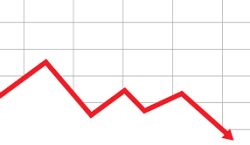

To turn around Pick n Pay and restore profitability, the group will shut 35 stores and convert another roughly 70 to the mass-market Boxer brand (in areas where this makes sense) or to PnP franchise operators.
In total, more than 100 stores will be converted or closed. This is a sizeable chunk of its current footprint – it only has 300 company-owned PnP supermarkets in South Africa. The closures amount to approximately 10% of its owned store base.
In just the coming months, it will shut at least 14 supermarkets, with another “more than 10” to be converted to Boxer. Its corporate plan sees these 35 store closures continuing for much of the next two years.
However, its franchise store footprint of nearly 200 supermarkets in SA will mean that its overall number of stores – as experienced by its customers – won’t decrease as drastically. In total, it owns 982 stores in the country, but this includes Clothing and Liquor outlets.
The misguided plan under former CEO Pieter Boone to split Pick n Pay into two brands, the main brand serving more affluent shoppers and QualiSave targeting the middle market, is being undone.
QualiSave is dead and these stores are being rebranded back to Pick n Pay. The core problem is that the range of goods in these outlets was cut too severely which negatively impacted margins, which then led to them turning unprofitable.
Some of these QualiSave stores are obvious candidates for conversion to Boxer, which operates at a structurally lower cost base in each store.
Pick n Pay CEO Sean Summers says beyond these 100 problem stores, it will ‘right size’ the rest of its store estate as it goes through the lease renewal cycle.
He says that, in general, its franchisees have been able to get “another 10% to 15% in revenue” out of one of their stores (versus a corporate one) and that these tend to be 33% to 50% smaller than corporate supermarkets.
This means far better trading densities, and profits. Summers concedes that stores that turn over between R8 million and R10 million a month are “not particularly profitable for us” but for franchise operators with their “own skin in the game” this is different.
Pick n Pay “fell behind in keeping stores fresh and modern,” says Summers. Falling behind saw its “spirit diminished over time”.
In effect, he says, this caused a breach of trust: “Pick n Pay broke its relationship with the consumer.” This is what it is determined to repair. The group will “reverse” certain decisions that have been taken in recent years and plans a renewed focus on bakery, butchery, produce and deli.
Some cuts that have been made to support functions over the last five to 10 years have been very damaging, says Summers. “If you show me an unhappy store, I’ll show you poor leadership and support.”
It is no secret that it has to fix service and the perceptions around customer service at its stores. It will retrain frontline staff and ensure that customer service managers have a constant presence in store. Tied to this is driving accountability across roles.
It says the “success of the plan hinges on re-instilling a sense of purpose, belonging and pride in the PnP brand”.
Summers says Pick n Pay has already seen a turnaround, but that it remains early days. What he and the executive team are looking for is “significant, consistent and sustainable change”.
In the first 12 weeks of this financial year – from March onwards – like-for-like sales at Pick n Pay stores are up (overall, there has been a slight decline due to store closures). It describes this as a “material improvement” versus the drop in the same period last year.
This turnaround will take three years, by which time Summers will depart, and a clear succession path is in place for the group’s leadership.
In this financial year, it still sees the group burning R1 billion in cash (after capex), less than half the R2.4 billion rate from last year.
In FY26, it is targeting breakeven on a cash flow basis (after costs related to capex and the restructuring plan), while in the year to February 2027 it is targeting Pick n Pay to deliver a trading profit.
Rights issue
The rights issue and the IPO of Boxer will raise between R10 billion and R12 billion. After getting rid of its R6 billion in net debt and the R1 billion in cash it will need this year, it will spend the remainder on the restructuring plan and its PnP store estate.
Summers describes the competitive landscape – with the formidable and arguably ‘unstoppable’ Checkers that has consistently been taking market share – as “fast evolving”.
He stresses that PnP won’t be dragged into a race to see who can have the most stores. He says the group needs “profitable, meaningful stores” that serve communities in which they operate on a sustainable basis. Currently, some areas are “horribly over-traded”. – moneyweb.co.za